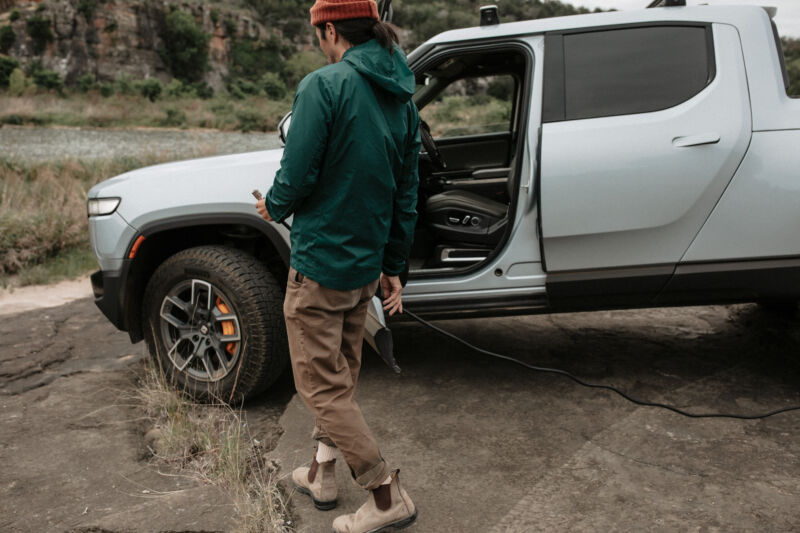
Rivian, the electric vehicle maker, is being sued (PDF) by a shareholder who alleges that the company’s surprising 20 percent price hike has tarnished Rivian’s reputation and violated US securities laws.
The company made “incorrect statements” in its IPO regarding the pricing of its R1T truck and R1S SUV, the lawsuit said. “Unbeknownst to investors,” the lawsuit says, Rivian’s filings for the IPO contained statements that were “materially inaccurate, misleading and/or incomplete, including failing to disclose that the R1T and R1S are too were expensive that Rivian would have to raise prices shortly after the IPO.”
The lawsuit alleges that the surprising price increases would “damage Rivian’s reputation as a reliable and transparent company” and risk canceling a “significant number” of the nearly 56,000 reservations the company had collected.
Rivian’s CEO RJ Scaringe, as well as his chief financial officer, chief accounting officer and his board of directors are named in the lawsuit, along with the insurers of Rivian’s IPO, including Morgan Stanley, Goldman Sachs and JPMorgan Chase.
When Ars contacted him, a Rivian spokesperson declined to comment.
Rivian’s trucks have been widely acclaimed in the auto press, and according to the company, nearly 56,000 customers have made $1,000 fully refundable deposits to buy an R1T or R1S. For a new automaker, such rave reviews and reservation numbers are key to having a presence in the notoriously challenging industry.
Last week, many of those customers were outraged when Rivian increased prices for both the R1T and R1S by significant amounts. To get a truck with the same specs, customers were now being asked to spend $12,000 more for an R1T and $14,500 more for an R1S. These prices represent an increase of 17 and 20 percent respectively. When announced, the price hikes applied to nearly every pre-order — only customers whose vehicles were in or near production were exempt. Production got off to a slow start, so there were few customers who would get a grandfather.
Within a day, the company partially reversed course by allowing customers to keep the original price advertised when they made their $1,000 deposit. Customers who canceled pre-orders placed before March 1 could have them reinstated if they wished.
Despite the turnaround, the lawsuit claims, the damage was done. These are statements made by Rivian in its registration statement and prospectus, two major filings of securities intended to help investors evaluate the company’s IPO. Specifically, as part of those filings, SEC regulations required Rivian to “describe any known trends or uncertainties that have had or that the registrant reasonably expects to have a material favorable or unfavorable effect on net sales or income or income from continuing operations.”
In his statements to the press at the time of the price hikes, Rivian said “inflationary pressures” were the cause of the surges. Still, the shareholder complaint, which cites Ars Technica’s coverage of Rivian’s price hikes, points to another lawsuit filed by Laura Schwab, the company’s former VP of sales and marketing.
One of Schwab’s claims was that, to Rivian’s management, “it was clear that the vehicles were too expensive and any sale would result in a loss for the company.” After Schwab raised the issue repeatedly, a senior executive “agreed they should raise car prices after the IPO.”
The new shareholder complaint seeks class action status on behalf of all common stock shareholders who participated in Rivian’s IPO on November 10, 2021, when the stock was offered for $78 per share. The day before the price hike was announced, Rivian was trading at about $67 a share. But the lawsuit points out that in the days following the price hike, the company’s value dropped to about $42 a share.

